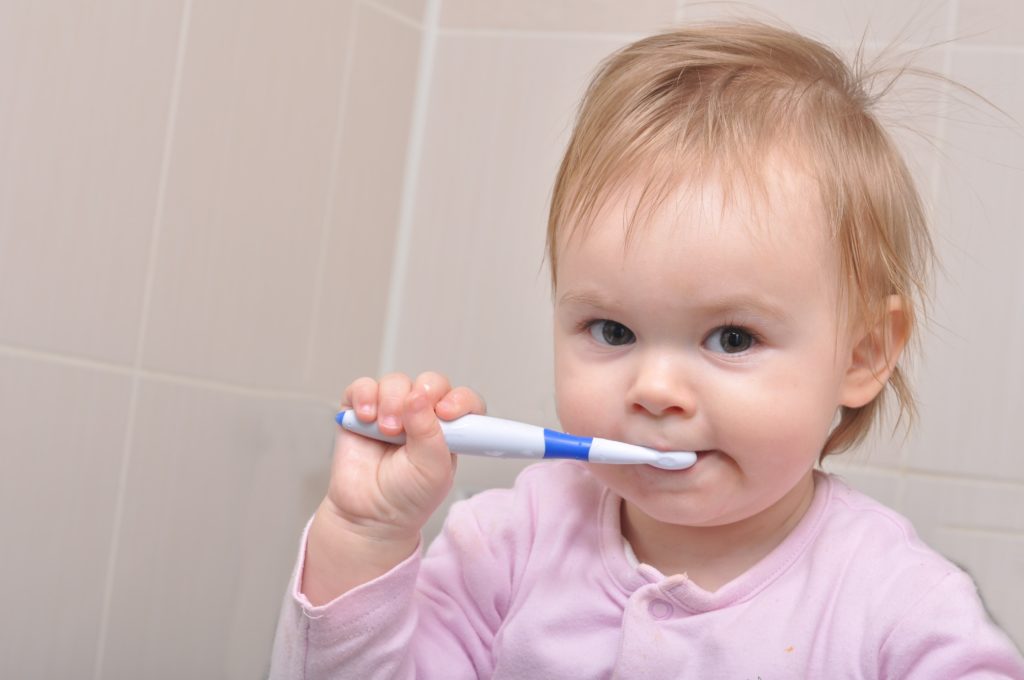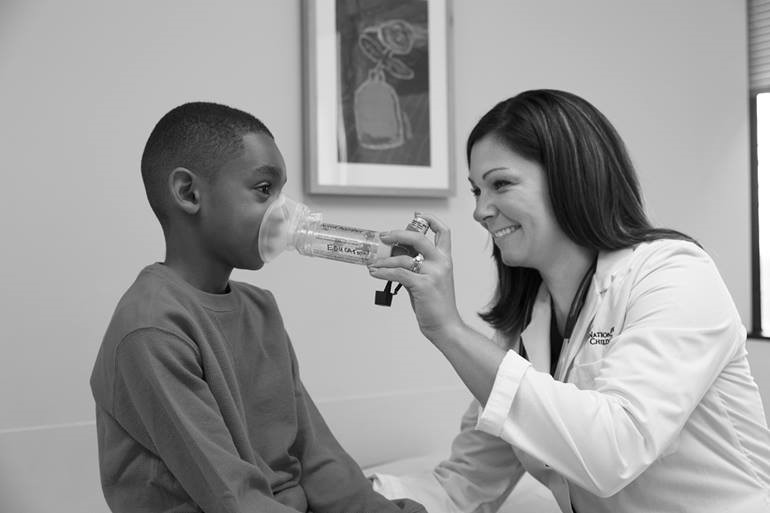Pediatricians Offer Valuable Oral Health Services for the Very Young, Before and Throughout Pandemic
Pediatricians Offer Valuable Oral Health Services for the Very Young, Before and Throughout Pandemic https://pediatricsnationwide.org/wp-content/uploads/2021/03/AdobeStock_20965807-1024x680.jpg 1024 680 Katie Brind'Amour, PhD, MS, CHES Katie Brind'Amour, PhD, MS, CHES https://pediatricsnationwide.org/wp-content/uploads/2021/03/Katie-B-portrait.gif- April 28, 2021
- Katie Brind'Amour, PhD, MS, CHES

Medical professionals see very young children much more frequently during the first several years of life than dentists, and many states’ Medicaid programs have seized the opportunity to reimburse pediatricians for preventive oral care, such as fluoride application and oral hygiene education. Despite reimbursement options and national guidelines recommending dental care begin by age 1, only about 8% of U.S. children under the age of 6 receive preventive oral care at well-child visits, and most children have no dental professional visit until the age of 3 or 4.
When COVID-19 forced many dental practices to close, Beau Meyer, DDS, MPH, a pediatric dentist at Nationwide Children’s Hospital and an assistant professor in the Division of Pediatric Dentistry at The Ohio State University, sought to determine how much preventive oral care provision suffered among children ages 1-5. He and a graduate student examined data for about 335,000 Medicaid-enrolled children in North Carolina and 76,000 in Partners For Kids® (an accountable care organization administering the Medicaid program in southern and southeastern Ohio) from January 2019—June 2020.
While the rate of fluoride application at preventive dental visits and well-child visits decreased significantly during the pandemic, the proportion of well-child visits with fluoride administration remained about the same. And during the study period, the total number of children receiving oral health care from physicians actually surpassed the number receiving care from dentists among kids 3 and younger.
“I was filled with gratitude when I saw that data. Even though the rates were low, physicians were still doing it—and at higher rates than dentists during the shut-down period,” says Dr. Meyer, who published the research in Frontiers in Dental Medicine in February. “I think pediatrician-delivered oral health care makes a big difference, especially when access to a dentist is limited. Physicians become a safety net to deliver preventive oral health care to kids.”
Dr. Meyer is now exploring opportunities to better quantify the impact that unique interprofessional collaborations—such as colocation of dental hygienists at medical clinics, increased referrals, improved reimbursement, supplemental physician education or identification of an oral health champion at medical offices (even among nurses or medical assistants)—could have on prevention of dental caries in young children.
“I think everything’s on the table at the moment from a brainstorming perspective,” says Dr. Meyer. “Pediatricians can play such an important role in preventive oral health by screening, applying fluoride varnish, referring when necessary and providing anticipatory guidance, to help build good oral health habits. The pie-in-the-sky hope is that by seeing them early, pediatricians and dentists can work together to prevent oral disease from ever developing.”
The American Academy of Pediatrics offers oral health practice tools and detailed coding guidance for physicians wishing to begin providing and billing for oral health screenings and care.
Reference:
Meyer BD, Danesh DO. The impact of COVID-19 on preventive oral health care during wave one. Frontiers in Dental Medicine, 2:636766.
Image credit: Adobe Stock
About the author
Katherine (Katie) Brind’Amour is a freelance medical and health science writer based in Pennsylvania. She has written about nearly every therapeutic area for patients, doctors and the general public. Dr. Brind’Amour specializes in health literacy and patient education. She completed her BS and MS degrees in Biology at Arizona State University and her PhD in Health Services Management and Policy at The Ohio State University. She is a Certified Health Education Specialist and is interested in health promotion via health programs and the communication of medical information.
-
Katie Brind'Amour, PhD, MS, CHEShttps://pediatricsnationwide.org/author/katie-brindamour-phd-ms-ches/April 27, 2014
-
Katie Brind'Amour, PhD, MS, CHEShttps://pediatricsnationwide.org/author/katie-brindamour-phd-ms-ches/April 27, 2014
-
Katie Brind'Amour, PhD, MS, CHEShttps://pediatricsnationwide.org/author/katie-brindamour-phd-ms-ches/April 27, 2014
-
Katie Brind'Amour, PhD, MS, CHEShttps://pediatricsnationwide.org/author/katie-brindamour-phd-ms-ches/April 28, 2014
- Post Tags:
- Dentistry
- Primary Care
- Posted In:
- Clinical Updates
- In Brief







